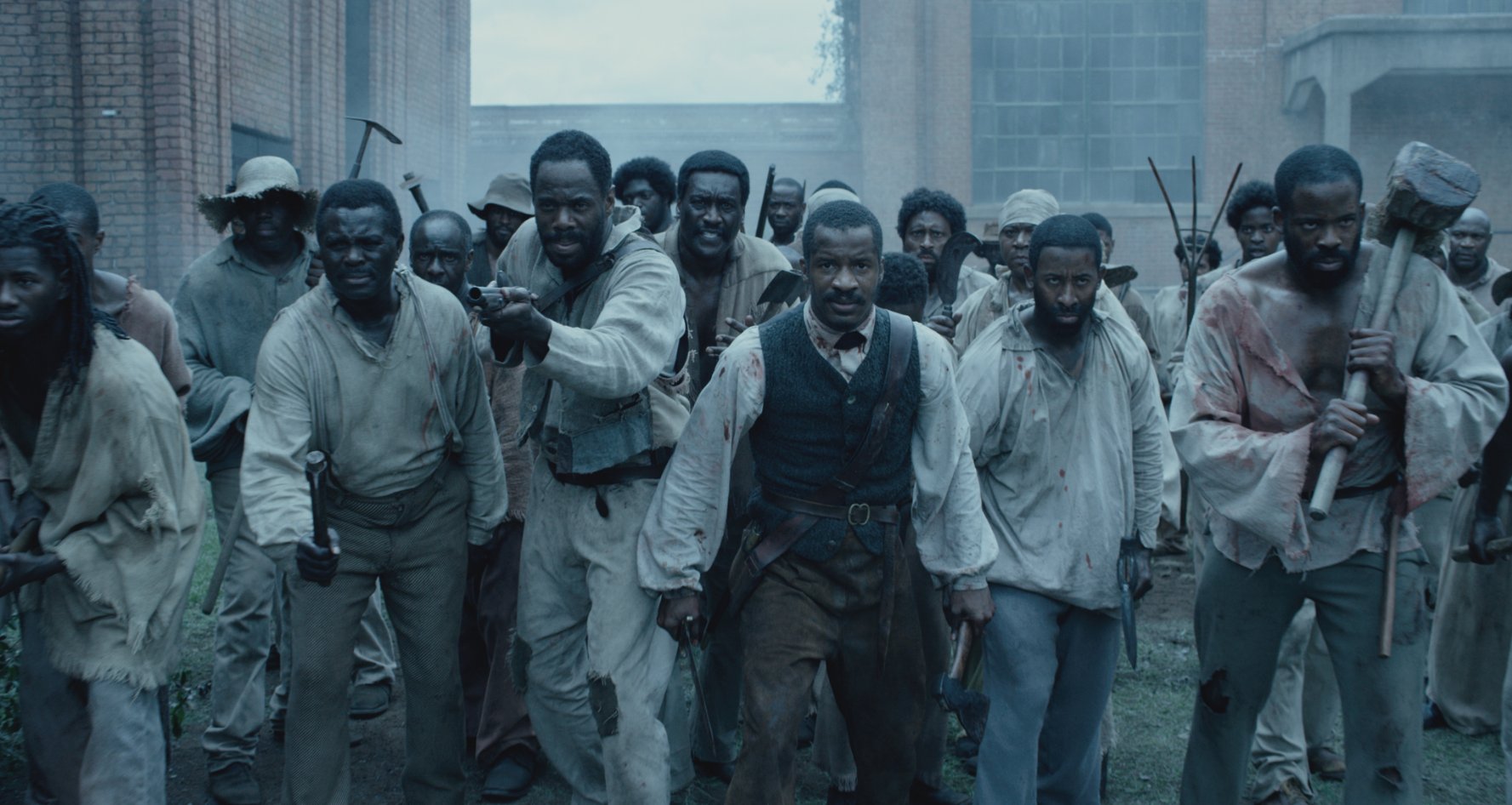
Ever since it premiered at Sundance Film Festival earlier this year, Nate Parker’s “The Birth of a Nation” has been a fountain of buzz and hype. Along with its title — reclaiming a name from D.W. Griffith’s infamous 1912 racist masterpiece — the Sundance viewing audience reveled in its telling of the 1831 slave rebellion led by Nat Turner, a story Parker had been trying to bring to screen for at least seven years. It won both the grand jury prize and the audience award for dramatic feature in the lead-up to Fox Searchlight paying a record-breaking $17.5 million for the distribution rights.
Unfortunately, this spotlight on Parker (known for movies such as “Beyond the Lights,” “Red Tails” and “Non-Stop”) soon turned against him once a 1999 rape charge against him and his writing partner Jean Celestin resurfaced. Parker was found not guilty while Celestin’s conviction was overturned, followed by the accuser’s suicide in 2012. Parker’s refusal to comment on the case and whether or not he had affirmative consent didn’t do much to help his public image, nor did comments in 2014 about gay roles being “emasculating.” What tends to get lost in controversies like this is the quality of the actual film itself, as many attempt to separate the artist from the art.
So does “Birth of a Nation” live up to the hype? It’s certainly a powerful and spiritual experience, but the film is a rather straightforward biopic, starting with Turner as a child being told he is destined for greatness. From there, it goes on to show his life as a slave (played by Parker himself) who is favored by his master Samuel Turner and his mother (Armie Hammer and Penelope Ann Miller, respectively, both giving fairly decent performances despite feeling flat). He then learns to read and begins touring the various plantations where he is exposed to the greater horrors of slavery. These scenes are appropriately gratuitous and horrifying, though the horrors feel pulpier than the somber scenes of “12 Years a Slave,” Steve McQueen’s Best-Picture-winning masterpiece. Parker doesn’t shy away from getting into the nitty-gritty of the violent acts committed against the slaves and manages to keep it from being exploitative.
Both Cherry, Turner’s entirely fictional wife played by Aja Naomi King and another slave (Gabrielle Union) are victims of sexual assault in the film and to its credit, both are portrayed tastefully. Union spoke out about being a victim shortly after the controversy. However, the fact that Parker and Celestin felt the need to invent a rape in part to give reason for Turner to rebel makes one wonder about their history — to say nothing about the way it refashions a female character as a motivation for the protagonist and an act of sexual assault as a way of making the villain more villainous. It can’t help but seem as if Parker is attempting to make himself into a greater hero for a past event or trying to show how much of a good guy he is.
The script would be the weakest part of the film even without those two questionable incidences. Far too often the dialogue is blunt, the characters speaking in literal terms and putting forth heavy-handed symbolism to show Turner’s religion. More frustrating is the way that Parker and Celestin don’t expand upon themes they introduce, preferring to stick to moments that become jarringly cornball when compared with the rest of the film. Turner himself isn’t portrayed beyond a surface level, although Parker commits wholeheartedly to the performance.
What saves the film is Parker’s direction, despite its occasional heavy-handedness and questionable motivations. He stages the final rebellion sequences as a tense and cathartic revenge fantasy that nonetheless shows what happens when someone gets pushed too far. He also manages to create some striking images: whether it be the time-lapse of the cotton field in the morning or more surreal moments. Despite its many flaws inherent to a first-time director and a script that feels like it could have been perfect awards bait, Parker has crafted a unique film that almost deserves to be seen just because it exists. It’s a shame his own views and past can’t help but creep in from time to time.

